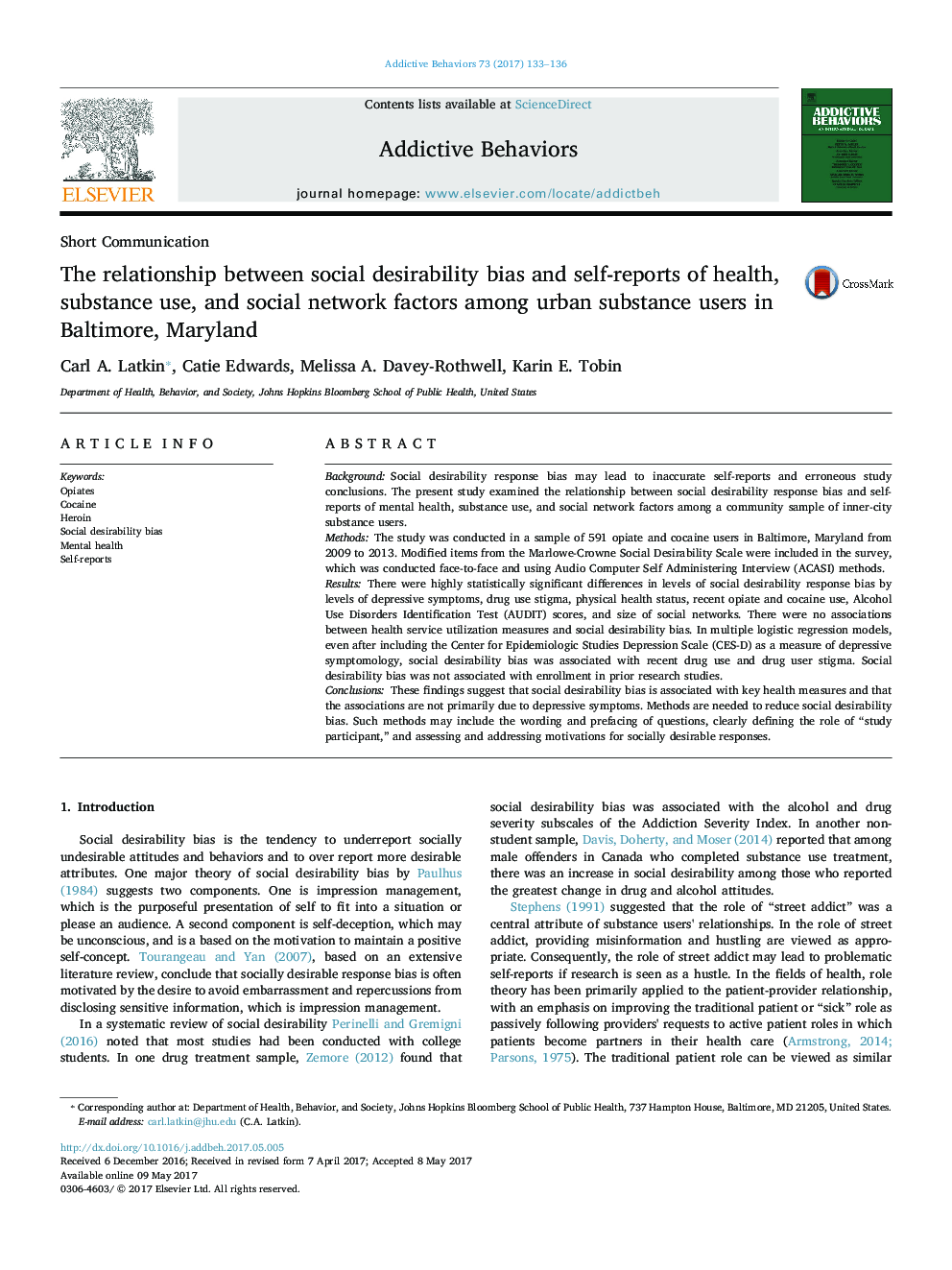| کد مقاله | کد نشریه | سال انتشار | مقاله انگلیسی | نسخه تمام متن |
|---|---|---|---|---|
| 5037590 | 1472498 | 2017 | 4 صفحه PDF | دانلود رایگان |
- Among substance users, social desirability response bias was associated with self-reports of physical and mental health, substance use, and social network factors.
- Even after adjusting for depression social desirability was associated with self-reported health and substance use.
- Social desirability was not, however, associated with more objective health measures nor was it related to being a “professional study subject”.
BackgroundSocial desirability response bias may lead to inaccurate self-reports and erroneous study conclusions. The present study examined the relationship between social desirability response bias and self-reports of mental health, substance use, and social network factors among a community sample of inner-city substance users.MethodsThe study was conducted in a sample of 591 opiate and cocaine users in Baltimore, Maryland from 2009 to 2013. Modified items from the Marlowe-Crowne Social Desirability Scale were included in the survey, which was conducted face-to-face and using Audio Computer Self Administering Interview (ACASI) methods.ResultsThere were highly statistically significant differences in levels of social desirability response bias by levels of depressive symptoms, drug use stigma, physical health status, recent opiate and cocaine use, Alcohol Use Disorders Identification Test (AUDIT) scores, and size of social networks. There were no associations between health service utilization measures and social desirability bias. In multiple logistic regression models, even after including the Center for Epidemiologic Studies Depression Scale (CES-D) as a measure of depressive symptomology, social desirability bias was associated with recent drug use and drug user stigma. Social desirability bias was not associated with enrollment in prior research studies.ConclusionsThese findings suggest that social desirability bias is associated with key health measures and that the associations are not primarily due to depressive symptoms. Methods are needed to reduce social desirability bias. Such methods may include the wording and prefacing of questions, clearly defining the role of “study participant,” and assessing and addressing motivations for socially desirable responses.
Journal: Addictive Behaviors - Volume 73, October 2017, Pages 133-136
